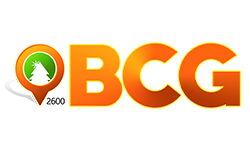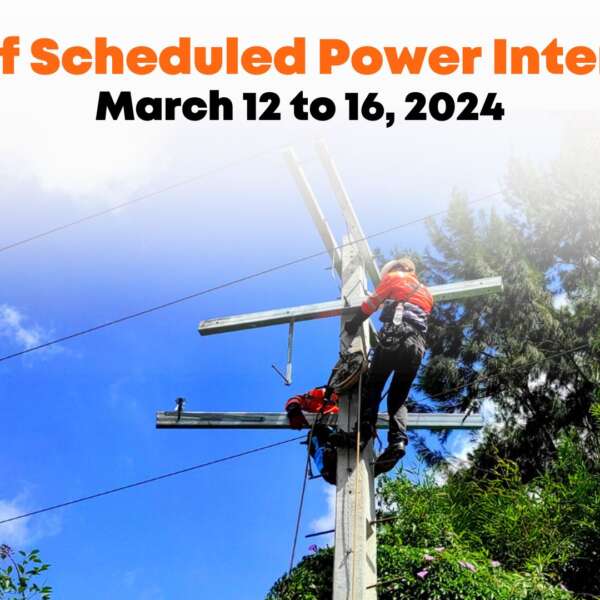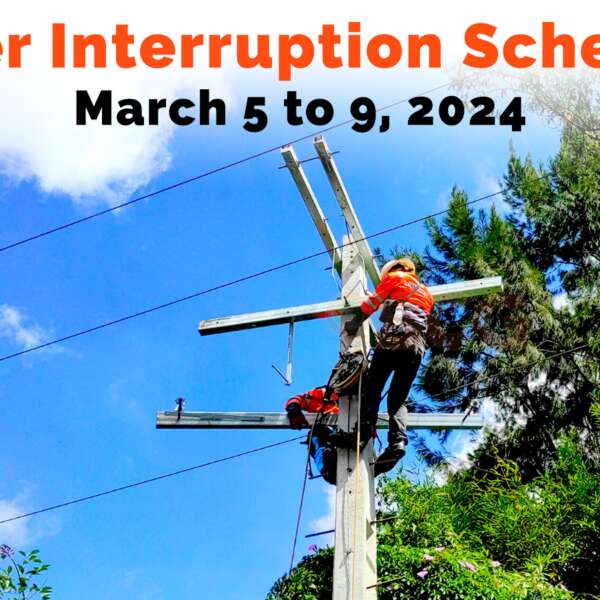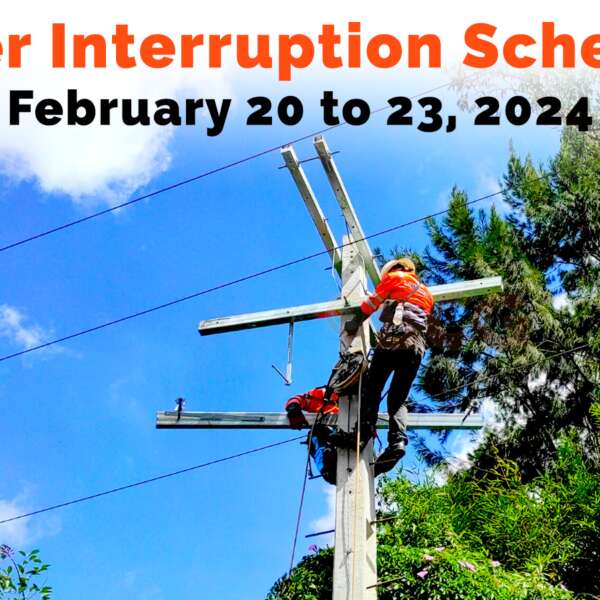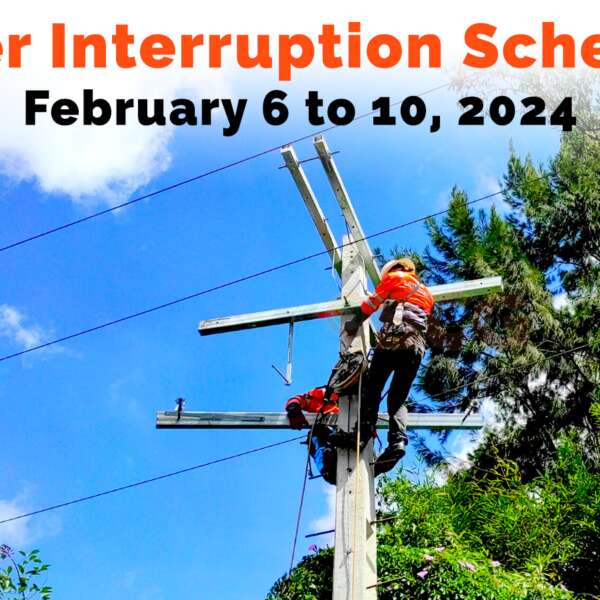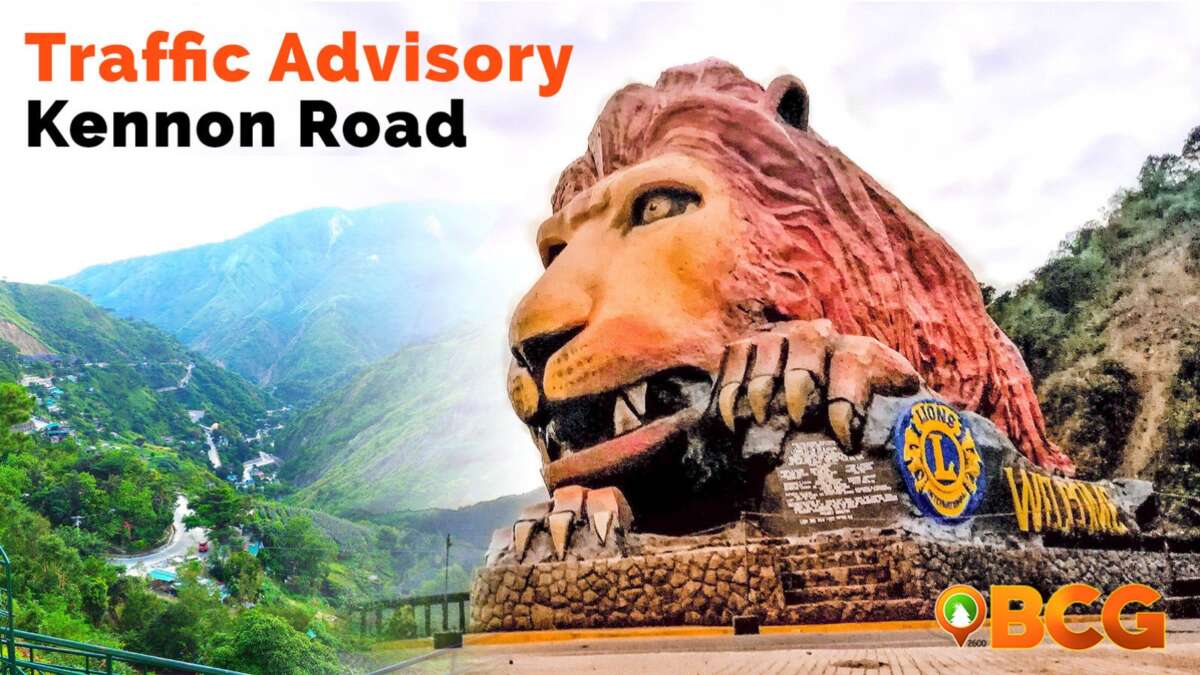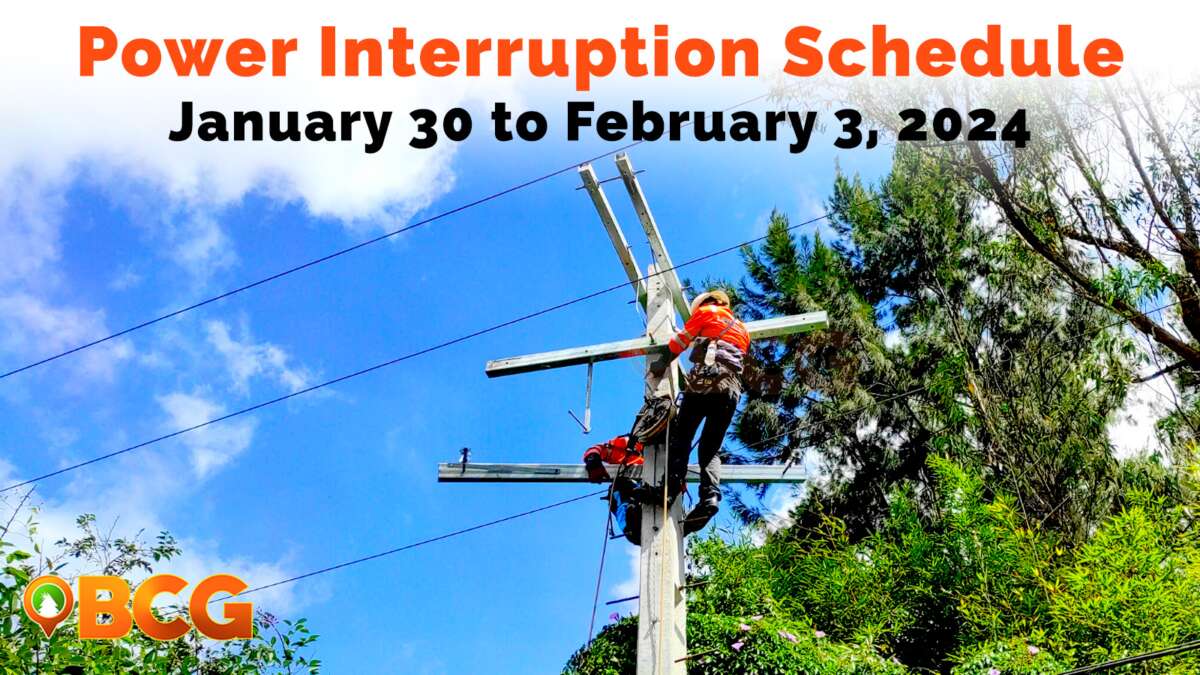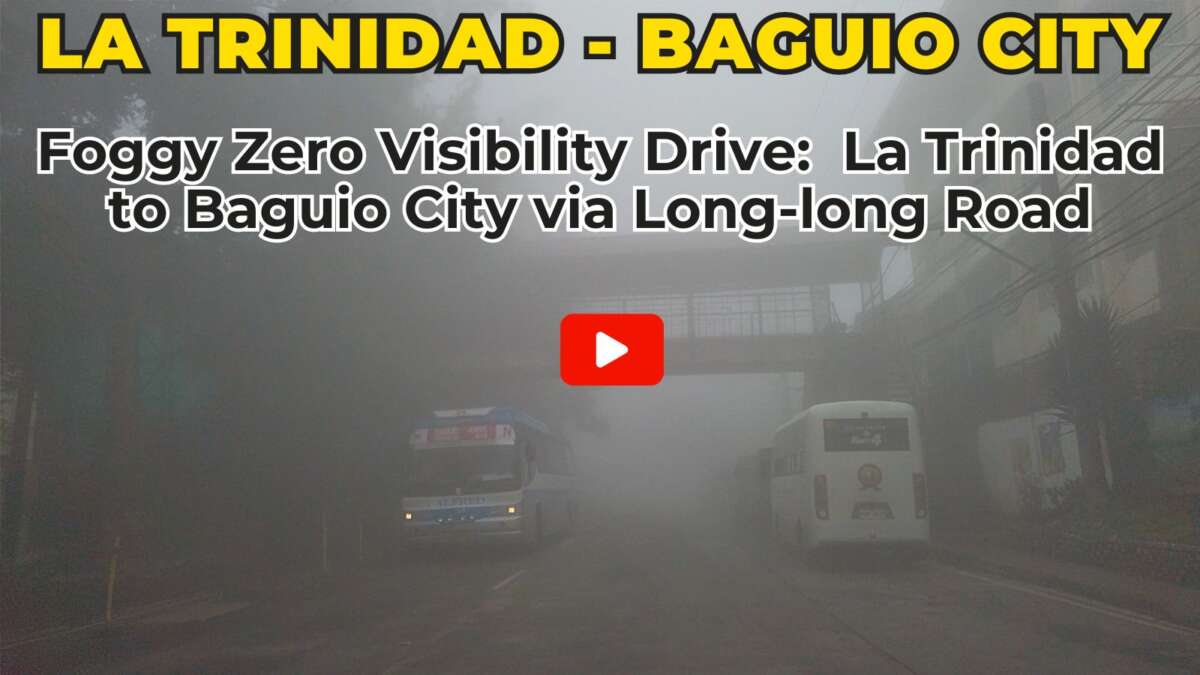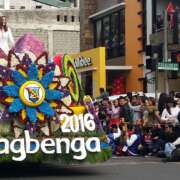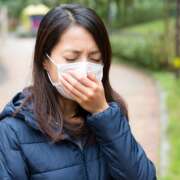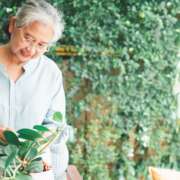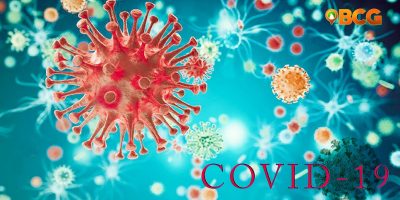Municipality of Itogon: General Community Quarantine (GCQ) Guidelines
Mayor Victorio Palangdan has signed Executive Order No. 09, prescribing the Guidelines of the General Community Quarantine (GCQ) in the Municipality of Itogon, Benguet which will be implemented starting today, May 18, 2020.
Itogon GCQ Guidelines
Here are the following guidelines for Itogon, Benguet under GCQ that must be strictly observed:
MINIMUM PUBLIC STANDARDS
The strict wearing of face mask and observance of physical distancing shall be strictly complied with.
MOVEMENT OF ALL PERSONS IN THE MUNICIPALITY
The movement of all persons in the municipality shall be limited to accessing essential goods and services and for work in the offices or industries permitted to operate. Thus, movement for leisure purposes will not be allowed.
PERSONS NOT ALLOWED TO GO OUT
Any person below 21 years old, those who are 60 years old and above, those with health risks and pregnant women, shall be required to remain in their residences at all times, except when indispensable under the circumstances for obtaining essential goods and services, and other activities.
CHECKPOINTS
Checkpoints in national roads entering into and exiting the municipality will be maintained. All other checkpoints will be dismantled today.
24-HOUR CURFEW
The 24-hour curfew for those not authorized to stay outside their residences will still be imposed subject to sanctions based on existing laws and ordinances.
Additionally, the 9:00 PM to 5:00 AM curfew will likewise be imposed.
LIQUOR BAN
Liquor ban, which includes the prohibition to buy, to sell, and to consume will still be in place.
PUBLIC TRANSPORTATION
Public Utility Jitneys (PUJs) plying routes from Itogon to Baguio City and vice versa shall remain based on the existing transportation scheme agreed upon by BLISTT (Baguio, La Trinidad, Itogon, Sablan, Tuba, and Tublay), subject to the allowed number of units to operate and conditions set by LTFRB.
Conditions set by LTFRB
- Operators must secure a Special Permit from LTFRB-CAR. Applications should be submitted via email at [email protected]
- Requirements:
- Recent OR and CR
- Valid CPC/Franchise
- Personal Passenger Accident Insurance (valid or existing)
- Requirements:
- Those who were granted Special Permits must strictly observe the following health protocols:
- FOR DRIVERS and/or operators
- .Wear masks and gloves at all times
- Collect fares at the front seat before the passenger boards the PUJ
- Disinfect vehicles every end of each trip with all surfaces (esp. Seats, armrests, handles) wiped down with a disinfecting agent
- If in continuous operation, all oftenly touched parts or surfaces of the vehicle shall be disinfected at least once every three (3) hours
- Provide foot-disinfectant or foot bath for passengers prior to boarding
- Seal off the driver compartment from the passenger area using a non-permeable, transparent material. In such case, one (1) passenger may be allowed on the driver’s row.
- Passenger load must not exceed 50% or half of the vehicle’s capacity (excluding driver and conductor) to observe physical distancing; passengers should be sealed one seat apart and no standing passengers shall be allowed.
- Install impermeable barriers between rows of seats that are less than one (1) meter apart if they want to maximize the 50% passenger load.
- Comply with all the IATF-EID resolutions in relation to the COVID-19 pandemic in order to prevent the spread of the virus.
- Commuters/Passengers
- .Required to wear masks to be allowed to board the PUJ.
- FOR DRIVERS and/or operators
- For the purpose of contact tracing:
- Passengers of PUJs are required to take note of the following:
- .Plate number or body number of the PUJs they rode
- Date and time they boarded the PUJ
- Route they took
- The above-mentioned shall be given to the PUJ driver upon getting off the vehicle
- PUJ drivers shall display this reminder on contact tracing with the plate number/body number of the vehicle and contact number of operator/driver prominently visible to all passengers.
- Drivers, conductors, and all related personnel shall keep a log of their daily travel to and from work.
- Passengers of PUJs are required to take note of the following:
- Fare matrix shall be displayed inside the vehicle for the information of the passengers.
- Hotline numbers must be properly displayed inside the PUJ and PUJ terminal premises for the information of the public.
NOTE: Itogon residents working in Baguio City shall be included among those who are allowed to avail of public transportation in the absence of a shuttle service provided by the employer.
LOCALLY STRANDED INDIVIDUALS (LSI)
All locally stranded individuals (LSIs) in the Municipality of Itogon who want to return to their hometown are allowed to leave the municipality following these steps:
- The LSI must inform the Punong Barangay of his desire to return to his hometown.
- The Punong Barangay will assist the LSI by issuing a letter of endorsement addressed to the Local Task Force on COVID-19 of Itogon.
- The LSI will bring the letter of endorsement to the Municipal Health Services Office (MHSO)
- The MHSO officer will conduct a medical examination upon the LSI and based on such examination, a medical /health certificate/clearance will be issued.
- The Office of the Municipal Mayor will issue a travel permit/authority once the LSI is issued the health clearance.
NOTE: The LSI will be responsible in securing other documentary requirements for his intended return to his/her hometown.
LSI Itogon Residents in other LGUs
Itogon residents that are stranded in other LGUs who want to return to the municipality will be assisted, provided that they comply with the requirements so that they will be allowed to leave the LGU where they are stranded.
NOTE: Existing protocols on returning residents will be strictly implemented.
RETURNING OFWs
For Overseas Filipino Workers (OFWs) returning to Itogon, national policies are hereby adopted.
SCHOOLS
Physical classes are suspended for the duration of the GCQ.
Furthermore, DepEd officials and employees required to report for work are allowed, provided that those residing outside Itogon shall present a Health Declaration Form and proof that they are required to report for work.
INTER-ZONAL MOVEMENT
Non-essential entry to Itogon by persons coming from ECQ areas is prohibited, except those allowed under the Omnibus Guidelines.
UNHAMPERED MOVEMENT OF CARGO
The national policy on the unhampered movement of cargo under ECQ shall be maintained.
- Workers operating and those inside the vehicles shall comply with the following health standards:
- Wearing of face masks, gloves for food handlers, etc.
- Workers shall be subjected to thermal scanning
- Cargo shall be duly inspected by the PNP in the designated checkpoints upon entry to the municipality.
DECLARATION, EXTENSION OR LIFTING LOCKDOWNS, ECQ OR ANY COMMUNITY QUARANTINE
The declaration, extension, lifting or imposing of lockdown, ECQ, or any community quarantine in any portion of the municipality of Itogon is not allowed unless decided upon by the Local Chief Executive and the Regional Task Force.
DISCRIMINATION AGAINST FRONTLINERS, OFWS, AND COVID-19 CONFIRMED/RECOVERED PATIENTS
Any act of discrimination against any of the following individuals are prohibited:
- Health Workers
- Repatriated OFWs and Non-OFWs
- COVID-19 cases (whether confirmed, recovered, undergoing treatment, suspect and probable cases, and other persons in relation to COVID-19)
NOTE: Any violation of this policy shall be dealt with in accordance with the laws, ordinances, rules, and regulations as may be pertinent.
SECTORS OR INDUSTRIES ALLOWED TO OPERATE UNDER GCQ IN ITOGON, BENGUET
Category 1 Industries: Full Operational Capacity
A. Agriculture, Forestry, and Fisheries
Agriculture, Forestry and Fisheries, and their workers, including farmers, Agrarian Reform Beneficiaries (ARBs), fisherfolk and agri-fishery stores, and its entire value chain.
B. Manufacturing and Processing Plants
Manufacturing and Processing Plants and entire value chain (raw materials. Inputs, including packaging) of Basic Food Products, Essential Products, Medicine and Medical Supplies:
- All food and beverages (only non-alcoholic drinks)
- Essential and hygiene products
- Soap, detergents, shampoo, and conditioners
- Diapers, feminine hygiene products, toilet paper, wet wipes
- Disinfectants
- Medicines and Vitamins
- Medical Product, such as PPEs, Masks, Gloves, and others
- Pet food, feeds, and fertilizers
C. Hospitals, medical clinics, and health clinics
Hospitals, medical clinics, and health clinics such as dermatological and other clinics for non-aesthetic such as dental, optometric and eye, ear, nose, throat (EENT), subject to strict health standards and strict observance of infection prevention and control protocols. Wearing of PPE be dentists and attendants shall be mandatory.
D. Retail Establishment
- Groceries, Supermarkets, Hypermarkets
- Public Markets, Convenience Stores
- Pharmacies, Drugstores
E. Laundry Shops (inc. self-service)
F. Food Preparation Establishment
Food preparation establishments in so far as take-out and delivery services and water-refilling stations.
G. Logistics Service Providers
- Cargo Handling
- Warehousing
- Trucking
- Freight Forwarding
- Shipping
H. Delivery Services
Delivery Services, whether in-house or outsourced, transporting:
- Food
- Medicine
- Hygiene products
- Medical supplies
- Clothing
- Accessories
- Hardware (such as appliances)
- Schools and office supplies
- Computer accessories, ink, IT, communications and electronics equipment
- Pet food, and other veterinary products
I. Power, energy, water, information technology and telecommunications supplies and facilities
Power, energy, water, information technology, and telecommunications supplies and facilities, including waste disposable services, as well as property management and building utility services.
J. Electricity, Gas, Steam and Air Conditioning Supply Services
K. Water collection, treatment, and supply
L. Waste collection, treatment, and disposal activities and materials recovery
M. Sewerage (except emptying of septic tanks, but including pest control, garbage collection, and disposal, sewer maintenance and treatment)
N. Repair and installation of machinery and equipment
O. Real Estate activities including:
- Leasing
- Buying
- Selling
- Subdividing
- Appraising
- Development of Cemetery and Columbarium
P. Telecommunication companies, internet service, providers, cable television providers
Telecommunication companies, internet service, providers, cable television providers, including those who perform indirect services such as the technical, sales, and other support personnel as well as the employees of their third-party contractors doing sales, installation, maintenance, and repair works.
Q. Energy companies
- Third-party contractors and service providers
- Employees involved in electric transmission and distribution companies, electric power plant and line maintenance, electricity market, and retail supplies.
- Those Involved in the exploration operations, trading and delivery of coal, oil, crude or petroleum and by-products (gasoline, diesel, liquefied petroleum gas, jet oil, kerosene, lubricants)
- Refineries and depots or any kind of fuel used to produce electricity
R. Gasoline Stations
S. Construction workers accredited by DPWH
Construction workers accredited by the Department of Public Works and Highways (DPWH) to work on facilities identified for purposes of quarantine and isolation, including facilities for the health sector, emergency works, flood control, and other disaster risk reduction and rehabilitation works.
T. Manufacturing companies and supplies of equipment or products necessary to perform construction works.
Category 2: 50 % Up to Full Operations Capacity
A. Other Manufacturing Activities
- Beverages (e.g. alcoholic drinks)
- Cement and Steel
- Electrical Machinery
- Wood products, Furniture
- Non-metallic products
- Textiles/Wearing Apparels
- Tobacco Products
- Paper and paper products
- Rubber and plastic products
- Coke and refined petroleum products
- Other non-metallic mineral products
- Computer, electronic and optical products
- Electrical equipment
- Machinery and equipment
- Motor vehicles, trailers, and semi-trailers
- Other Transport Equipment
- Others
B. Mining and Quarrying
C. Electronic Commerce Companies
D. Postal and courier and delivery services of all other products not included in the Omnibus Guidelines.
E. Export-oriented companies
F. Essential public and private construction projects, such as but not limited to sewerage, water services facilities and digital works and health facilities and priority projects
G. Repair of computers, and personal and household goods
H. Housing service activities
I. Office administrative, office support, and other business activities such as but not limited to photocopying, billing, and record-keeping services
J. Funeral and embalming services. Provided that, funeral service operators are directed to provide shuttle services and/or housing accommodation for their personnel and staff.
K. Veterinary clinics
L. Security and investigation vehicles
Category 3: 50 % Wok-on-site Arrangement, Work-from-home, and Other Alternative Work Arrangement
A. Banks, money-transfer services, microfinance, institutions, pawnshops and credit cooperative, including their armored vehicle services, if any
B. Other financial services such as
- Money Exchange
- Insurance
- Reinsurance
- Pension Funding
- Except Compulsory Social Security
C. Legal and Accounting
D. Management and Consultancy Activities
E. Architecture and engineering activities, technical and analysis
F. Scientific and research development
G. Advertising and market research
H. Computer Programming (such as Writing, Modifying, Testing and supporting software, Planning and designing computer systems), Information Services Activities (such as Data processing and hosting activities), and other related activities
I. Publishing and printing activities (such as Printing of newspapers, magazines and other periodicals, books, brochures, manuscripts, posters, maps, atlases, advertising catalogues, prospectuses, etc; printing directly onto textiles, plastic, glass, metal wood and ceramics)
J. Rental and leasing activities, other than real estate such as:
- Leasing of motor vehicles, machinery, and equipment
- Except for entertainment and mass gathering services
K. Employment Activities (such as Recruitment and Placement, for essential activities)
L. Malls and commercial centers including:
- Hardware stores, clothing, and accessories
- Mall-based government frontlines services
- Other non-leisure stores and establishment
NOTE: Dining services will remain closed.
M. Barbershop shops and salon (including Nail Care)
- Subject to compliance with strict health standards
N. Other non-leisure wholesale and retail establishment and activities:
- Wholesale and retail trade of motor vehicles, motorcycles, and bicycles, including their parts and components
- Repair of motor vehicles, motorcycles, and bicycles including:
- Hardware stores
- Bookstores and school and office supplies stores
- Baby care supplies store
- Pet food and pet supplies; IT communications and electronic equipment; flower, jewelry, novelty, antique, perfume shops.
Category 4
All Category Four (4) industries enumerated in the DTI MC. No. 20-22 and Omnibus Guidelines for Quarantined are not allowed to operate during GCQ.
Itogon Residents Employed outside the Municipality
The movement of Itogon residents who are employees in the private sector allowed to operate, government employees resuming to work at their respective work stations outside the municipality shall be allowed subject to presentation in quarantine checkpoints of company ID or certificate of employment.
Furthermore, shuttle services of these government offices, companies, and business establishments, if there are any, shall be allowed access by the quarantine checkpoints upon presentation of relevant documents.
Self-Employed Individuals
For self-employed individuals, the Punong Barangay shall furnish a list of the names identified self-employed individuals within his jurisdiction to the quarantine checkpoint manning the entry and exit of the barangay.
Business Establishments and Private Companies Operating in Itogon
Employers of these establishments and companies are encouraged to employ workers or employees who are residents of Itogon, provided they meet the qualifications set by the company or the employer.
SOURCE: LGU – Itogon
RELATED ARTICLES:
Entire Cordillera Administrative Region Will Be Under General Community Quarantine
Tuba, Benguet General Community Quarantine Guidelines
General Guidelines for Baguio City while Under GCQ
